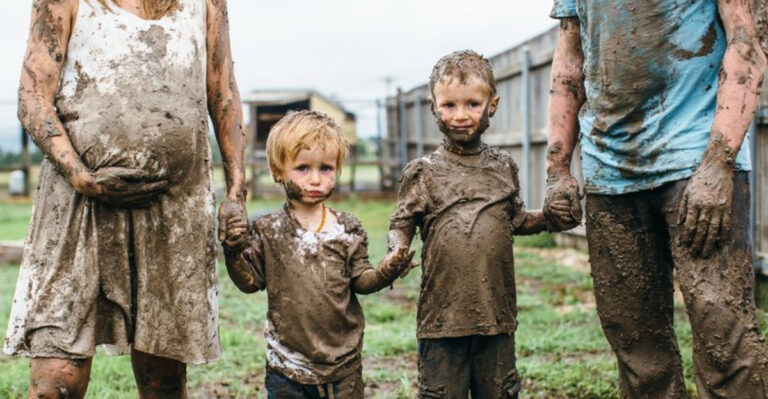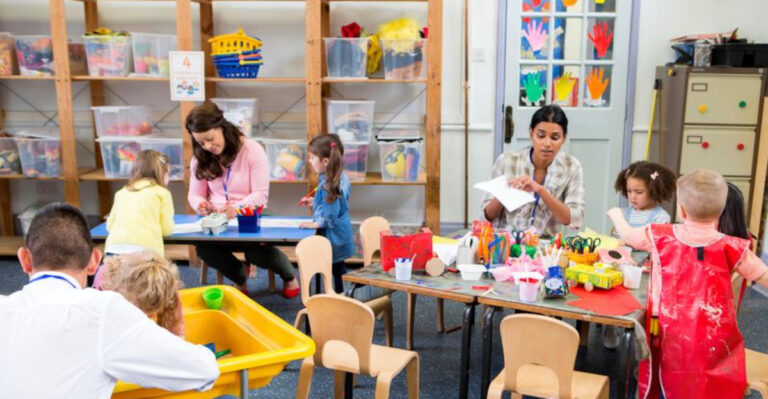34 Real Reasons Your Adult Kids Are Secretly Resenting You
Oh, the tangled web of parent-child relationships! Even as our children grow into adults, the dynamics remain delightfully complex. We, the well-meaning parents, often find ourselves baffled by the chilly gusts of resentment blowing our way. But fret not!
We’re here to unravel these mysteries with a dash of humor and a sprinkle of wisdom. Here’s a candid exploration of 34 reasons your adult children might be rolling their eyes or sighing deeply. Grab a cup of tea, and let’s embark on this emotional journey together!
1. Unwanted Advice

Ah, the classic: me offering pearls of wisdom, and them looking like they’d rather be anywhere else. There’s something irresistibly tempting about sharing my decades-worth of knowledge, whether it’s about career moves or the best way to peel an avocado. But let’s face it, my advice often crashes into the wall of their independence. I can see them thinking, ‘Thanks, but no thanks, Mom,’ as they politely nod along.
I get it, though—there’s a certain thrill in figuring things out on your own. And while my suggestions come from a place of love, it’s essential to recognize when to step back and let them take the driver’s seat. Offering advice sparingly and only when asked might just save us both a lot of frustration.
Next time, maybe I’ll just bite my tongue and offer a listening ear instead. After all, sometimes they just need someone to vent to, not a roadmap for life. A little less talking, a little more understanding—sounds like a plan, right? And who knows? They might even come asking for my advice someday.
2. Overbearing Help
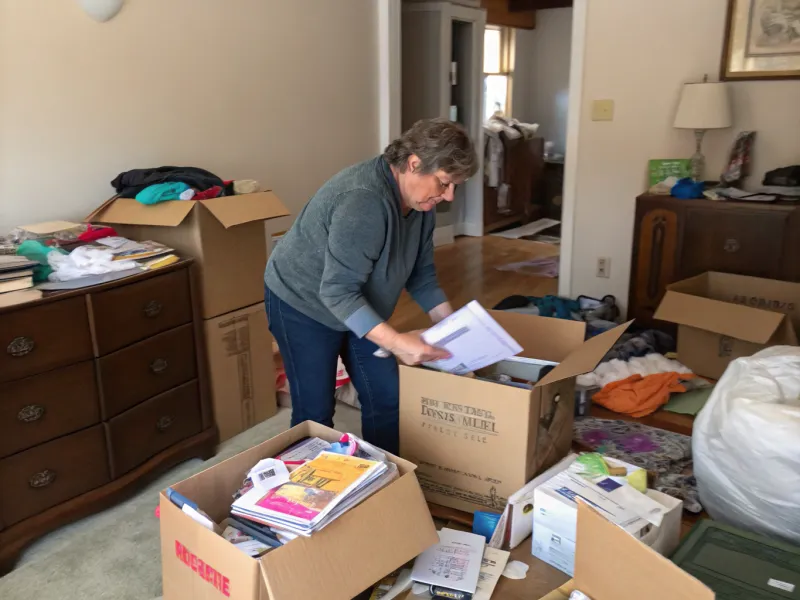
Oh dear, the compulsion to help out. I’ve been caught red-handed in my child’s space, trying to ‘organize’ their world, thinking I’m being helpful when, in fact, I’m just stepping on toes. It’s like an uncontrollable urge to fix and tidy, but in reality, it’s their space, their rules.
Sometimes, they just want to handle things on their own, without the hovering presence of a well-intentioned parent. I’ve realized it’s crucial to ask before acting, respecting their autonomy as adults. It’s not about my comfort anymore; it’s about theirs.
Offering help is lovely, but enforcing it? Not so much. Next time, perhaps I’ll hold back the urge to meddle unless they’re genuinely overwhelmed and asking for assistance. Creating a respectful boundary is key—they’ll appreciate it in the long run, even if they don’t say it outright.
3. Constant Comparison
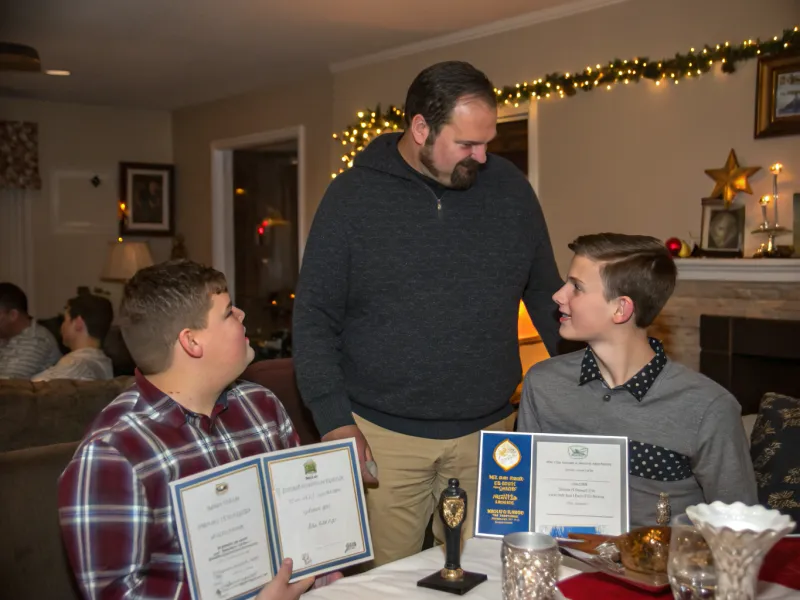
There it is, the dreaded comparison game. Comparing my children to each other or their peers might seem harmless, but to them, it’s a fast track to resentment city. Each child, unique in their own way, deserves to be celebrated for who they are, not stacked against others.
I’ve noticed that even the most subtle comparisons can create a deep sense of inadequacy or rivalry. It’s a slippery slope that I’d rather not tread. Instead, focusing on their strengths and accomplishments without measuring them against others can build a much healthier relationship.
After all, no one likes being in someone else’s shadow. By appreciating each child’s individuality, I hope to foster an environment where they feel valued and understood—no comparisons needed, just love and support for who they truly are.
4. Outdated Expectations

Ah, the familiar trap of outdated expectations. I sometimes forget that it’s not the 1980s anymore, and my visions of success might not align with their dreams. Encouraging them to follow a traditional path like mine seems logical, but it’s not necessarily what they envision for themselves.
The world is constantly changing, and so are the definitions of success and happiness. By holding onto old ideals, I risk alienating my children and dismissing their aspirations. Instead, it’s time to update my understanding and support their unique journeys.
No more pushing them towards the paths I imagine. Instead, I’ll cheer them on, whether they’re pursuing unconventional careers or opting for a life different from my own. After all, isn’t it most important that they find fulfillment on their own terms?
5. Financial Strings

Money, the great complicator. Supporting my children financially, even with the best intentions, can sometimes come with unspoken strings attached. It’s easy to fall into the trap of thinking financial aid gives me a say in their life choices, but that’s a surefire way to breed resentment.
Adult children, like anyone, crave autonomy. They want to make their own decisions without feeling beholden to parental influence. I’ve learned that offering financial support should come with no strings attached. If I can’t do that, perhaps it’s better to offer moral support instead.
Creating a balance where I can help without overstepping is crucial. Trusting them to manage their own lives—even if they occasionally stumble—is part of letting them grow. Withholding judgment and offering unconditional support might just make all the difference.
6. Intrusive Questions

Curiosity killed the cat, and it might just kill the vibe with my children too! Asking overly personal questions about their relationships, finances, or life choices can lead to a defensive wall quicker than you’d think. Yes, my interest springs from love, but there’s a fine line between curiosity and intrusion.
Respecting my children’s privacy is paramount. They’re adults, with lives that stretch beyond my understanding or control. Probing too deeply can feel like an invasion, even if I mean no harm.
So, how to balance interest and respect? By allowing them to open up in their own time and on their own terms. If they need advice or want to share details, they will. Until then, a gentle respect for their boundaries can keep our relationship strong and resentment-free.
7. Reluctance to Apologize

Ah, the art of the apology—a skill I sometimes struggle to master. Admitting I’m wrong isn’t easy, especially when I’ve spent years as the family authority. But refusing to apologize, even when I know I should, can drive a wedge between me and my children.
No one likes feeling invalidated or unheard. My children want to know that I respect their feelings and views, even when they clash with mine. A sincere apology can work wonders in repairing hurt feelings and restoring harmony.
So, here’s to swallowing my pride a little more often. By acknowledging my mistakes and saying those all-important words, ‘I’m sorry,’ I can show my children that I value our relationship more than my ego. That’s a win for everyone involved.
8. Ignoring Boundaries

Boundaries, boundaries, boundaries. They’re not just for toddlers and teenagers; they’re crucial for adult relationships too. Ignoring my children’s boundaries, whether it’s barging into their homes unannounced or calling them multiple times a day, can lead to growing resentment.
Understanding and respecting their need for space is vital. It’s not about shutting me out; it’s about them maintaining a sense of control over their lives. By respecting their limits, I show that I trust them to manage their own lives.
It’s a delicate dance, but one worth mastering. Listening to their needs and adjusting my behavior accordingly can transform our relationship from strained to supportive. After all, everyone appreciates a parent who respects their boundaries.
9. Judging Relationships

Love is in the air—sometimes accompanied by a disapproving sniff from yours truly. Judging my children’s partners or friends can create a chasm between us faster than you can say ‘not good enough.’ My protective instincts might kick in, but it’s essential to remember that their choice of partner is just that: their choice.
By criticizing their relationships, I risk undermining their happiness and autonomy. Instead, offering support and getting to know their partners without preconceived notions might pave the way for a more harmonious family dynamic.
I’ve learned that embracing their choices—within reason—can strengthen our bond. After all, isn’t it more rewarding to celebrate their happiness than to question it? Letting go of judgment can lead to love and acceptance, which is what family should be all about.
10. Technology Disconnect

Ah, technology—the great divider of generations. My struggles with smart gadgets can lead to eye-rolling and exasperation from my tech-savvy children. It’s as if every swipe and tap challenges the very fabric of our communication.
While I might not be as quick with my thumbs, I’m keen to learn. Bridging the tech gap can feel daunting, but it’s a worthy mission. By asking for help rather than resisting it, I show my children that I respect their expertise.
Who knows? A little patience and willingness to adapt might turn those sighs into smiles. After all, navigating the digital world together can be an adventure, and a chance to bond over shared tech triumphs and tribulations.
11. Playing the Victim

Oh, the drama! Sometimes, when things don’t go my way, it’s tempting to play the martyr. But perpetually casting myself in the role of victim can push my children away, making them feel manipulated rather than understood.
They need to see me as resilient and fair, not as someone who resorts to guilt trips. By focusing on open dialogue and addressing issues head-on, I can foster a more honest and supportive relationship. It’s about tackling problems together, not assigning blame.
So here’s to a little less drama and a lot more communication. By leaving victimhood behind, I can show them the strength and compassion that truly define our family bond.
12. Unrealistic Expectations

The weight of unrealistic expectations—sometimes I forget that my children are living their own lives, not fulfilling my dreams. Expecting them to live up to my high standards or follow the path I envisioned can lead to unnecessary stress and resentment.
I’ve learned that my role is to support their journey, not dictate it. By celebrating their achievements, however small, and encouraging their passions, I can create an environment where they feel free to explore and grow.
Letting go of my expectations and embracing their individuality can pave the way for a healthier, happier relationship. After all, life’s too short to live someone else’s dreams. Encouraging them to shine in their own right brings us both joy.
13. Guilt Tripping

The heavy artillery of guilt-tripping—oh, how tempting it can be to use! But wielding guilt is a double-edged sword that can damage our relationship more than any disagreement. My children are perceptive; they know when I’m trying to manipulate them into doing what I want.
Instead of resorting to guilt, I strive for honesty and understanding. Expressing my needs and hopes directly, without the emotional blackmail, is far more effective in maintaining a healthy bond.
By treating my children as equals and respecting their autonomy, I show them that I value our relationship over getting my way. It’s a path that leads to more meaningful connections and less resentment.
14. Stubborn Traditions

Ah, family traditions, my beloved relics of the past. Yet, insisting on these traditions can sometimes feel suffocating to my children, who might want to create new customs or celebrate in ways that reflect their own lifestyles.
Recognizing the need for flexibility is key. By opening up to new traditions and respecting their desires, I allow our family to evolve and embrace a more inclusive celebration of life’s milestones.
It’s about finding a balance—cherishing old traditions while welcoming new ones. By doing so, I keep our family bond strong and adaptable, appreciating the richness of our diverse experiences.
15. Living Vicariously

Ah, the thrill of living vicariously through my children! It’s tempting to steer them toward activities and passions I once held dear, but this can make them feel like they’re carrying the weight of my unfulfilled dreams.
By focusing on their interests and supporting their unique journeys, I can show them that I value their individuality. It’s not about reliving my past experiences through them; it’s about celebrating their present.
By letting go of my own aspirations and cheering them on in their pursuits, I create space for them to grow and thrive. They don’t need to follow my footsteps to make me proud. Their happiness is my true reward.
16. Silent Treatment

Ah, the silent treatment—a tool I’ve occasionally wielded with unintended consequences. While it might seem like a way to express my displeasure without confrontation, it can actually drive a deeper wedge between me and my children.
They need open communication, not icy silence. By choosing dialogue over distance, I show them that our relationship is worth more than holding onto hurt feelings.
Talking things out, even when it’s difficult, demonstrates my willingness to understand and resolve issues. It’s a chance to build bridges rather than walls, strengthening our connection and paving the way for a more harmonious future together.
17. Overprotectiveness

Oh, the irresistible urge to shield my children from the world’s dangers! My overprotectiveness, though well-intentioned, can smother their independence and drive them to resent my constant hovering.
I’ve learned that stepping back and allowing them to take risks is crucial. It’s about trusting them to navigate their own paths, even if they stumble along the way.
By offering support without suffocating oversight, I show them that I believe in their abilities. It’s a lesson in letting go, one that leads to mutual respect and a stronger, more trusting relationship.
18. Unsolicited Criticism

Criticism, especially when unsolicited, can sting more than a swarm of bees. My well-meaning suggestions often come across as judgmental, leaving my children feeling undervalued and misunderstood.
Instead of jumping to criticize, I aim to offer support and encouragement. By focusing on their strengths and achievements, I foster a more positive environment where they feel respected and appreciated.
Constructive feedback is important, but timing and tone are everything. By choosing my words carefully and ensuring they’re coming from a place of love, I can keep our relationship strong and resentment-free.
19. Favoritism

Ah, the appearance of favoritism—a perilous path that can fracture sibling relationships and lead to deep-seated resentment. Even if unintentional, showing preference for one child over another can create rifts that last a lifetime.
I strive to treat my children equally, acknowledging their unique qualities and loving them for who they are. It’s about ensuring each one feels valued and cherished, without measuring them against each other.
By being mindful of my words and actions, I can reinforce the idea that every child is special in their own right. It’s a commitment to fairness and love that strengthens our family bond and keeps resentment at bay.
20. Clinging to the Past

Nostalgia, while comforting, can sometimes trap us in the past. My fondness for reminiscing about bygone days might make my children feel as if I’m reluctant to embrace the present or future.
While it’s lovely to cherish memories, it’s equally important to celebrate the here and now. By engaging with my children in their current lives and interests, I show them that I value their present experiences.
It’s about finding a balance between honoring the past and living fully in the moment. By doing so, I create a dynamic relationship that values growth and change, fostering a deeper connection with my children.
21. Inflexible Opinions

Ah, the allure of a firm belief! Holding onto inflexible opinions can create a barrier between me and my children, especially when our views diverge on important topics.
It’s essential to engage in open-minded discussions, where both sides feel heard and respected. By showing a willingness to listen and learn, I pave the way for meaningful conversations rather than heated arguments.
Embracing flexibility in my opinions doesn’t mean relinquishing my values; it means recognizing the value in others’ perspectives. Through this approach, I can strengthen my bond with my children and promote a more harmonious relationship.
22. Meddling in Parenting

Oh, the temptation to offer my two cents on parenting! As a grandparent, it’s tempting to impart my wisdom, but meddling in my child’s parenting style can lead to friction and resentment.
Respecting their choices and supporting their methods is key. By offering help only when asked and refraining from unsolicited advice, I show respect for their autonomy as parents.
It’s about trusting their abilities and recognizing that they’re doing their best. By stepping back and allowing them to lead, I foster a supportive, respectful relationship that benefits the entire family.
23. Emotional Distance
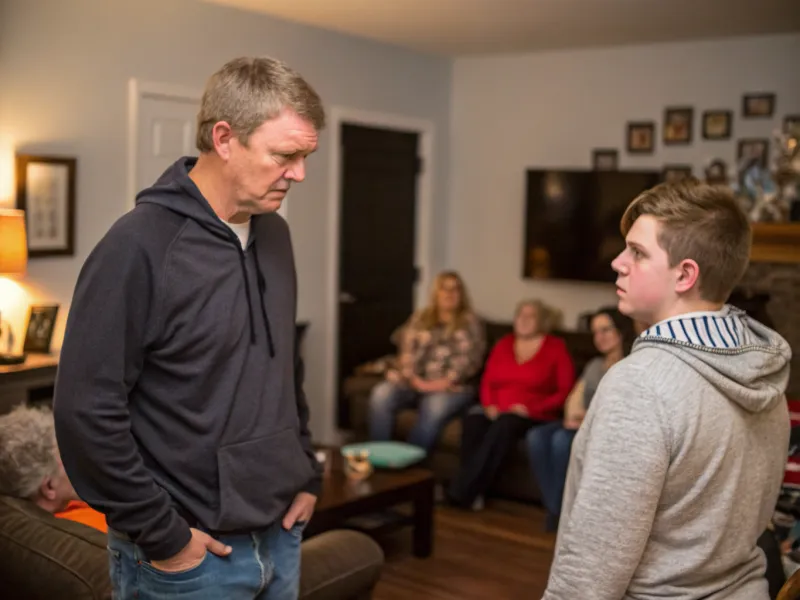
Emotional distance can be as chilling as a winter breeze. My children crave connection and understanding, and a lack of emotional warmth can leave them feeling isolated and resentful.
By opening up and expressing my feelings more openly, I can bridge the emotional gap between us. It’s about showing vulnerability and empathy, creating a safe space for them to share their own emotions.
Through heartfelt communication and genuine connection, I can transform our relationship into one of mutual understanding and support. It’s a journey worth taking, one that leads to a loving and resilient family bond.
24. Neglecting Their Achievements

Overlooking my children’s achievements can make them feel invisible, as if their hard work and successes don’t matter. Recognizing and celebrating their milestones is crucial in fostering a sense of appreciation and understanding.
By acknowledging their victories, no matter how small, I show them that I value their efforts and am proud of their accomplishments. It’s about being an attentive and supportive parent, cheering them on every step of the way.
Through genuine acknowledgment and celebration, I can reinforce their sense of worth and create a positive, encouraging environment. It’s a simple yet profound way to show my love and support.
25. Pressuring for Grandchildren

The subtle pressure to produce grandchildren can weigh heavily on my children’s shoulders. While my eagerness to become a grandparent is understandable, constantly bringing it up can feel like an unwelcome demand.
Respecting their timelines and choices is crucial. By showing patience and understanding, I allow them to make this decision on their own terms, without feeling rushed or obligated.
It’s about valuing their life choices and trusting that they’ll make the right decision when the time is right. By letting go of the pressure, I foster a more supportive and respectful relationship.
26. Indifference to Their Interests

Indifference to my children’s interests can hurt more than a thousand words. When I dismiss their hobbies or passions, it signals that I don’t value what makes them unique and happy.
By taking an active interest in their pursuits, I show them that I care about their happiness and value their individuality. It’s about asking questions, showing enthusiasm, and participating where possible.
Through genuine interest and encouragement, I can strengthen our relationship and create a supportive environment where they feel valued and loved. It’s a powerful way to show my commitment to their happiness and well-being.
27. Overemphasis on Appearances

The obsession with appearances—sometimes I get caught up in how things look rather than how they feel. My children can sense this emphasis on external validation, and it might make them feel superficial or judged.
It’s important to focus on the essence rather than appearances, valuing their inner qualities over how they present to the world. By doing so, I encourage them to be authentic and true to themselves.
Through acceptance and love, I can show them that they’re more than what meets the eye. It’s about nurturing their inner selves and fostering a sense of belonging and self-worth.
28. Being Overcritical

Excessive criticism, even when well-intentioned, can erode my children’s confidence and self-esteem. By focusing too much on their flaws or mistakes, I risk damaging their sense of self-worth and pushing them away.
Instead, I aim to provide balanced feedback, highlighting their strengths and offering constructive criticism in a supportive manner. It’s about building them up rather than tearing them down.
Through positive reinforcement and encouragement, I can create an environment where they feel valued and empowered. It’s a way to nurture their growth and strengthen our relationship, free from unnecessary resentment.
29. Ignoring Their Independence

Parents may struggle to accept their child’s newfound independence, leading to over-involvement in their lives. By not recognizing their adult child’s capability to manage their own affairs, parents unknowingly create tension. Accepting and celebrating this independence can foster healthier relationships.
Many adult children crave acknowledgement of their autonomy, a sentiment that is often overlooked. This oversight can manifest in subtle ways, such as micromanaging decisions or offering unsolicited advice. Allowing them room to grow and make mistakes is crucial.
Encouraging independence doesn’t mean distancing yourself, but rather supporting them as they navigate adulthood. By stepping back and respecting their space, parents can build a more respectful and harmonious relationship.
30. Inability to Let Go of Control

Control can be a hard thing for parents to relinquish, especially if they have been in charge for so long. This inability to let go can stifle the adult child’s growth and lead to feelings of resentment. Finding a balance in the relationship is key.
When parents maintain control over decisions or constantly intervene, they may unintentionally undermine their child’s confidence. This dynamic can result in the adult child feeling untrusted or undervalued. Giving them the freedom to make their own choices is vital.
Empowering adult children to take the reins of their lives can enhance mutual respect and understanding. Parents should aim to guide rather than dictate, fostering an environment of trust and open communication.
31. Not Acknowledging Past Mistakes

Let’s be honest—parenting is messy, and none of us got it 100% right. But brushing past mistakes under the rug and expecting everything to be water under the bridge? That can silently fester into resentment.
Your adult children may still carry emotional baggage from earlier years—moments when they felt unseen, unheard, or misunderstood. Ignoring those memories or pretending they didn’t happen doesn’t erase the impact.
Instead, try a simple, heartfelt conversation. Acknowledging the pain, apologizing sincerely, and listening without defensiveness can be incredibly healing. You don’t have to have been a perfect parent—just one who’s willing to own the past and grow from it.
32. Resisting Change in the Relationship

Your child is no longer a kid, yet it’s easy to fall into the trap of treating them like one. Whether it’s talking down to them or still making decisions on their behalf, resisting the evolution of your relationship can be frustrating for them.
They want to be seen and treated as equals—adults navigating life on their own terms. Holding on to old dynamics doesn’t just stunt their growth, it puts unnecessary strain on your bond.
Shifting from “parenting” to “partnering” might take some effort, but it’s worth it. Embrace the change, celebrate their adulthood, and rebuild your connection on mutual respect. You’re not losing your role—you’re redefining it for the better.
33. Failure to Respect Privacy

Imagine waking up and finding your parent rummaging through your personal belongings, even with the best intentions. This lack of respect for privacy can be a significant source of resentment for adult children.
Parents might think they are helping, but this level of intrusion can feel suffocating. Privacy is essential for individual growth and independence. Without it, adult children may feel stifled.
By not allowing their children space, parents inadvertently communicate a lack of trust. It is crucial to understand that respecting boundaries fosters a healthy, respectful relationship. Privacy is not a privilege; it’s a fundamental right.
34. Dismissal of Personal Achievements

Celebrating achievements is a vital part of feeling valued and recognized. When parents dismiss or belittle their adult child’s accomplishments, it can lead to deep-seated resentment.
Acknowledging achievements, no matter how small, is crucial for self-esteem. Parents may unintentionally downplay success by comparing it to their own experiences, diminishing its importance.
Feeling appreciated and recognized by parents strengthens bonds and boosts confidence. Ignoring these milestones can create emotional distance, making children feel undervalued. Recognizing and celebrating achievements is essential in nurturing a positive parent-child relationship.






